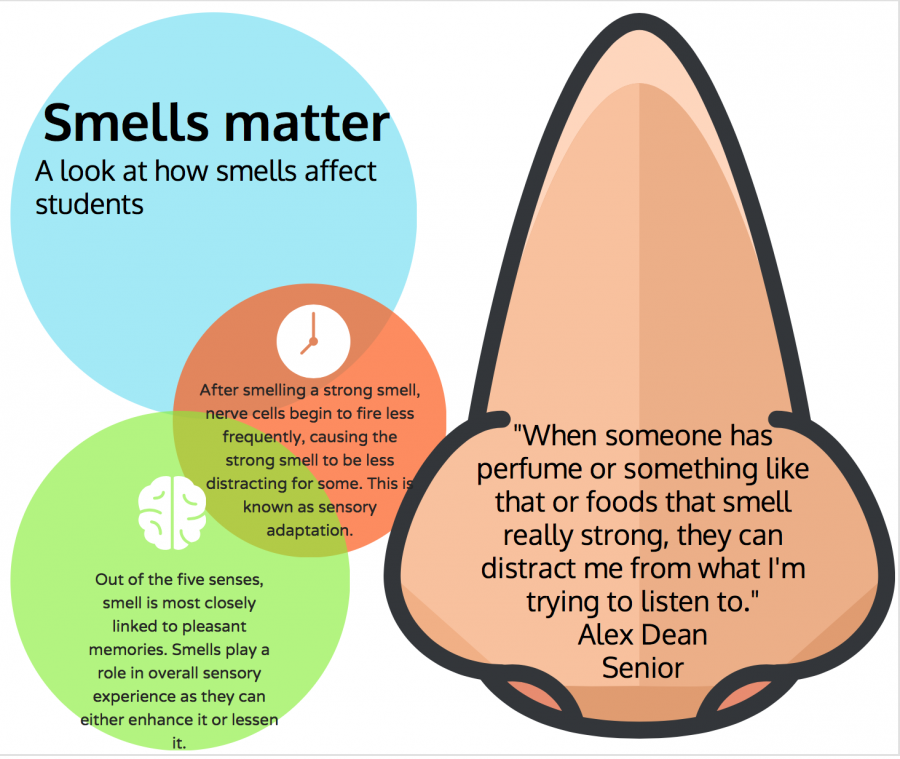Strong smells affect students, teachers negatively
Photo credit: Michal Ruprecht
November 16, 2017
As senior Alex Dean enters class, she notices a difference in the atmosphere. But it isn’t a change in classroom decorations or a substitute teacher. Instead, it’s the pungent smell of deodorant and cologne.
“Sometimes people wear Axe or something like that, and they will sit right behind me and it’s just really hard to focus because my eyes are watering and I’ll start sneezing,” Dean said. “When someone has perfume or something like that or foods that smell really strong, they can distract me from what I’m trying to listen to.”
Dean said she uses deodorant, but tries to use specific types of deodorants to minimize the effects.
“The deodorant or perfume I use isn’t super strong smelling,” she said. “I’ll spray it in the air and then walk through it instead of spraying it directly on myself, so it’s not as strong.”
Social studies teacher Bridget Cooley said she is sensitive to strong smells, too. She said they can cause her headaches.
“I think people as a joke have sprayed cologne in the hallway or the stairwell,” Cooley said. “Not so much in my classroom, but just in the hallway kids will be like, ‘Oh god I can’t take it,’ and it’s not pleasant.”
Cooley said she tries to filter the air and increase the amount of oxygen in the classroom by opening windows and growing plants. She does this because the smells affect her students, too.
“I know that smells can definitely trigger our emotions (and) make you feel uncomfortable,” she said. “They can give you headaches.”
Although strong smells continuously affect Dean and Cooley, many people are able block them out through sensory adaptation. Sensory adaptation occurs when a stimulus becomes less distracting after nerve cells fire less frequently.
Even though many people slowly adapt to an unfavorable smell, smells have a large impact overall. According to psychology teacher Jennifer Weisbrodt, there is a direct link between the olfactory bulb in the nose to the memory center in the brain called the hippocampus. Therefore, smell can be associated with different memories, pleasant or unenjoyable, and can affect overall sensory experience and learning.
Cooley said that though diffusers and essential oils may provide positive memories, she prefers not to use them because they may trigger allergies. Cooley added that she hopes more students are cautious of others when using strong smells.
“I think there are smells that could be positive for the learning environment,” Cooley said. “There’s certain smells I like that I think are good for thinking, but you never know what could affect people.”













